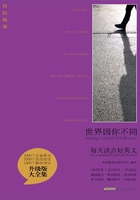
艺术的真谛 A Definition of Greatness in Art
约翰·罗斯金/John Ruskin
Painting, or art generally, as such, with all its technicalities, diffculties, and particular ends, is nothing but a noble and expressive language, invaluable as the vehicle of thought, but by itself nothing. He who has learned what is commonly considered the whole art of painting, that is, the art of representing any natural object faithfully, has as yet only learned the language by which his thoughts are to be expressed. He has done just as much towards being that which we ought to respect as a great painter, as a man who has learnt how to express himself grammatically and melodiously has towards being a great poet. The language is, indeed, more diffcult of acquirement in the one case than in the other, and possesses more power of delighting the sense, while it speaks to the intellect;but it is, nevertheless, nothing more than language, and all those excellences which are peculiar to the painter as such, are merely what rhythm, melody, precision, and force are in the words of the orator and the poet, necessary to theirgreatness, but not the tests of their greatness. It is not by the mode of representing and saying, but by what is represented and said, that the respective greatness either of the painter or the writer is to be fnally determined.
So that, if I say that the greatest picture is that which conveys to the mind of the spectator the greatest number of the greatest ideas, I have a defnition which will include as subjects of comparison every pleasure which art is capable of conveying. If I were to say, on the contrary, that the best picture was that which most closely imitated nature, I should assume that art could only please by imitating nature;and I should cast out of the pale of criticism those parts of works of art which are not imitative, that is to say, intrinsic beauties of color and form, and those works of art wholly, which, like the Arabesques of Raffaello in the Loggias, are not imitative at all. Now, I want a defnition of art wide enough to include all its varieties of aim. I do not say, therefore, that the art is greatest which gives most pleasure, because perhaps there is some art whose end is to teach, and not to please. I do not say that the art is greatest which teaches us most, because perhaps there is some art whose end is to please, and not to teach. I do not say that the art is greatest which imitates best, because perhaps there is some art whose end is to create and not to imitate. But I say that the art is greatest which conveys to the mind of the spectator, by any means whatsoever, the greatest number of the greatest ideas;and I call an idea great in proportion as it is received by a higher faculty of the mind, and as it mere fully occupies, and in occupying, exercises and exalts, the faculty by which it is received.
If this, then, be the definition of great art, that of a great artist naturally follows. He is the greatest artist who has embodied, in the sum of his works, the greatest number of the greatest ideas.
绘画,或者说一般的艺术,尽管它们技巧高妙、困难重重、目标独特,其实也不过是一种高贵而富于表现力的语言,和思想的载体一样,非常宝贵,不过它们自身是毫无价值的。一个人要想学会通常所说的绘画艺术,也就是忠实地再现任何客观物体的艺术,也不过是学会了表达思想的语言。为了成为受人尊敬的大师,他付出了艰辛的努力,但这种努力跟某个学会用合乎语法、音调悦耳的文字表达情意的人想成为伟大诗人所付出的努力是一样的。这种语言的确比那种语言难学,当它诉诸智力时,也更能使人的感官感到愉悦。然而,它仅仅是语言,画家认为独特的各种优点,也就相当于诗人和演说家语言具有的节奏、旋律、精密和力量,这些只是他们伟大的必要条件,而不是检验他们是否伟大的标准。不管是画家还是作家,他的伟大与否,最终不是看他表现与写作的方式,而是看他表现与写作的内容。
所以,如果我说最伟大的画,就是能向观赏者的大脑传达最多伟大思想的画,那么,我这个定义就包括了艺术所能传达的作为比较对象的全部乐趣。相反,如果我说最好的画就是模仿自然模仿得最逼真的画,我是在假定艺术只有模仿自然才能给人愉悦,我批评时就会抛开那些非模仿的艺术作品,即具有自身色彩美和形式美的作品,以及像拉斐尔在梵蒂冈宫绘制的壁画那样毫无模仿的一切艺术作品。现在,我想找个很广的艺术定义,囊括目标各异的所有艺术种类。因此,我不说给人愉悦最多的艺术最伟大,因为也许某种艺术目的在于教育,不在于给人以愉悦。我不说教给我们知识最多的艺术最伟大,因为也许某种艺术目的在于给人愉悦,不在于教育。我不说模仿最逼真的艺术最伟大,因为也许某种艺术目的在于创造,而不在于模仿。但我要说,无论采用何种方式,只要是向观众大脑传达最丰富、最伟大的思想的艺术,就是最伟大的艺术;我所说的伟大思想是指它能够为心智较高的人所接受,它能更彻底地占有并在占有过程中锻炼和提高接受它的心智。
如果说这就是伟大艺术的定义,那么,伟大艺术家的定义自然就是这样的:最伟大的艺术家就是其全部作品表现了最丰富、最伟大的思想的艺术家。
心灵小语
只有一种成功,那就是能够用自己的方式度过自己的一生。
——莫利
W词汇笔记
technicality['tekni'kæliti:]n.学术性;专门性;术语,专门语
例 This argument rests largely on a technicality.
这一观点主要是关于术语的专门性的。
noble['nəubl]adj.高尚的;贵族的;高贵的
例 The more noble the more humble.
结实愈丰者,其穗愈低。
invaluable[in'væljuəbl]adj.无价的
例 This set of ancient china is invaluable.
这套古瓷器非常珍贵。
convey[kən'vei]v.传达;运输;转移
例 Face can convey a lot of information.
脸部可以传达出许多信息。
S小试身手
现在,我想找个很广的艺术定义,囊括目标各异的所有艺术种类。
译____________________________
我不说模仿最逼真的艺术最伟大,因为也许某种艺术目的在于创造,而不在于模仿。
译____________________________
最伟大的艺术家就是其全部作品表现了最丰富、最伟大的思想的艺术家。
译____________________________
P短语家族
The language is, indeed, more difficult of acquirement in the one case than in the other……
in the one case:在这种情况下
造____________________________
If I were to say, on the contrary, that the best picture was that which most closely imitated nature……
on the contrary:正相反
造____________________________